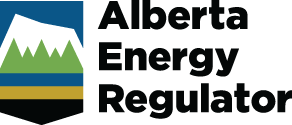As Alberta’s single energy regulator, we are no strangers to “policing” Alberta’s oil and gas industry. We keep a watchful eye on energy companies to make sure that they follow the rules throughout the life of their projects. Companies are encouraged to proactively identify, report, and correct their actions when a rule or requirement is not followed.
If we find a company that isn’t following the rules or requirements, we’ll take action by applying one or more compliance and enforcement tools. The tools we use will depend on how significant the noncompliance is. We keep a record of every company’s compliance and enforcement history. If a company purposely (or repeatedly) fails to follow the rules, our enforcement actions will escalate and penalties will become more severe.
In every case, we ensure a fair, firm, and consistent approach to bring the company into compliance.
Follow Our Updates
Visit our Compliance Dashboard to find out which companies aren’t complying, and what we’re doing about it. Under the dashboard’s compliance and enforcement tab, we share information such as compliance and enforcement decisions, administrative sanctions, and orders we’ve issued. The site also lists our incident responses and investigations across the province.
Our Compliance and Enforcement Tools
Our tools include the following:
- notice of noncompliance
- warning
- order
- administrative sanction
- fee
- administrative penalty
- prosecution
- declaration of a named individual
Click to learn more about each tool. Please refer to section 7 of Manual 013: Compliance and Enforcement Program for more information.
We will send a company a notice of noncompliance if the company is not complying with our requirements. A notice is a written document that details which specific requirements the company isn’t following and often recommends a course of action. It asks the company to correct the noncompliance and confirm the correction to us. See section 7.2 of Manual 013 for more information.
We may issue a warning to a company following an investigation. Similar to a notice of noncompliance, a warning notifies the company in writing that we are aware of its noncompliance. We keep warnings on record in case of continued or repeated noncompliance by the company. See section 7.3 of Manual 013 for more information.
We will issue an order to a company when we require the company to correct one or more noncompliances and take action by a deadline. We can issue a variety of orders, including environmental protection orders, suspension orders, and enforcement orders. Orders are effective because they
- ensure that no company benefits from not complying;
- deter noncompliance for other regulated parties; and
- ensure that companies respond quickly to prevent or stop actual or potential impacts on the environment, public safety, or orderly development of resources.
See section 7.4 of Manual 013 for more information.
Administrative sanctions are more commonly imposed on companies with poor compliance history. Administrative sanctions vary; we can restrict certain activities, suspend an entire operation, or even cancel our approval. See section 7.5 of Manual 013 for sanction types and more information.
Some noncompliances will result in us issuing a fee to the company. For instance, we will charge fees if a company
- files information late, or
- has data discrepancies in its submissions that need to be corrected.
The fees cover the administrative costs associated with these issues. Our fee schedule is listed in part 17 of the Oil and Gas Conservation Rules. If the company continues to submit late or incorrect information, we will apply additional compliance and enforcement tools. See section 7.6 of Manual 013 for more information.
An administrative penalty is a monetary fine. We will impose a penalty if a company fails to comply with specific regulations, acts, or rules, or with the terms of their approval, and when the circumstances are as follows:
- A warning does not adequately reflect the severity of the noncompliance and therefore would not be an effective deterrent.
- An administrative sanction is not a sufficient response based on the evidence and circumstances.
- There are mitigating or aggravating circumstances that should be considered.
See section 7.7 of Manual 013 for more information.
Prosecution is a court proceeding initiated against a regulated party, individual, or corporation alleged to have committed an offence under an energy resource or specified enactment. Prosecution is appropriate when we have reasonable grounds to believe an offence has been committed, and when one or more of the following apply:
- Previous enforcement responses have been ineffective, or there is reason to believe that other enforcement responses will not be effective.
- The action of the offender was willful or negligent.
- There is significant harm, or the potential for significant harm, to the environment.
- The lives or safety of people were endangered, or there was potential for the lives or safety of people to be endangered.
- The noncompliance was committed to achieve a competitive advantage.
- The noncompliance undermines the integrity of the regulatory system.
- Any other relevant factor applies.
See section 7.8 of Manual 013 for more information.
Under section 106 of the Oil and Gas Conservation Act or section 51 of the Pipeline Act, we might issue a declaration naming persons in control of a company that failed to comply with an AER order or that has an outstanding debt to the AER or the orphan fund. A declaration can prevent a person or company that continues to breach requirements from owning or operating an energy company in Alberta. See section 7.9 of Manual 013 for more information.


